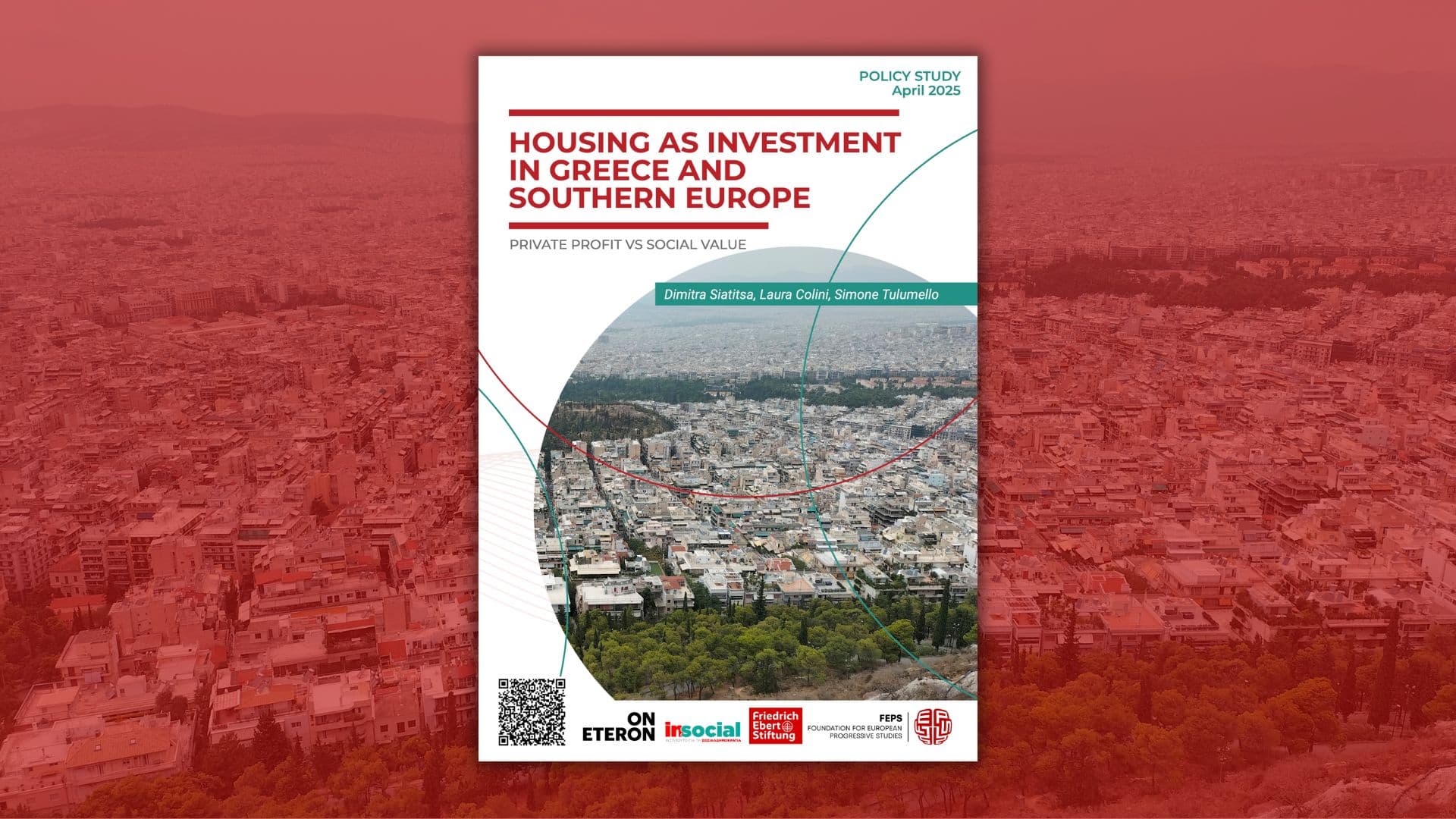AI-Generated Summary
Learn moreContext and Background
The policy study titled "Housing as Investment in Greece and Southern Europe: Private Profit vs Social Value" was published in 2025 by the Foundation for European Progressive Studies (FEPS) in collaboration with Eteron, Friedrich-Ebert-Stiftung, and InSocial. Authored by Dimitra Siatitsa, Laura Colini, and Simone Tulumello, the study addresses the critical housing crisis in Southern Europe, particularly in Greece, where housing has increasingly been treated as an investment asset rather than a social good. The research highlights the impact of neoliberal policies and austerity measures post-2008 financial crisis, which have led to a dramatic rise in housing prices—66.4% from 2017 to 2024—making it increasingly unaffordable for local populations.
Housing Unaffordability in Greece
Greece has some of the highest levels of housing cost overburden in Europe, with 28.5% of the population and 84.5% of the poor spending over 40% of their disposable income on housing costs as of 2022. Homeownership has decreased from 73% in 2011 to 70% in 2022, while the rental sector has expanded. The housing market is increasingly influenced by foreign demand and tourism, with approximately 25% of residential real estate transactions between 2018 and 2022 financed by Foreign Direct Investment.
Pathways of Housing Financialization
The study identifies three main pathways through which housing has been financialized:
- Private Debt Management: Non-performing loans have become an investment opportunity for financial actors, concentrating residential properties in the hands of banks and debt servicers. 2. Touristification of Residential Stock: Short-term rentals, facilitated by digital platforms, have converted housing into a commodity for tourists, with up to 232,841 short-term rental units available in Greece by 2024. 3. Activation of Entrepreneurial Activity in the Rental Market: New corporate actors are entering the rental market, targeting higher-income segments rather than addressing local housing needs.
Legal Mechanisms Enabling Speculation
Key legal frameworks have contributed to housing speculation, including the Golden Visa Program, which grants residency permits to non-EU investors purchasing property over €250,000 and has significantly driven up housing prices. Additionally, the management of non-performing loans has been facilitated through legal mechanisms that allow banks to transfer these loans to specialized servicers. There is also growing pressure on Real Estate Investment Trusts (REITs) to expand into residential properties.
Policy Responses and Their Limitations
Government housing policy packages in Greece (2022 and 2024) have faced criticism for their focus on mortgaged homeownership through subsidized loans and reliance on market subsidies rather than direct provision of social housing. These market-led approaches have been deemed inadequate and may exacerbate issues by increasing prices and deepening social polarization.
Comparison with Other Southern European Countries
While Southern European countries face similar housing challenges, Greece lacks a public, municipal, or non-profit housing sector, unlike Portugal, Italy, and Spain, which have developed limited social housing mechanisms.
Alternative Policy Paths
The study proposes three main policy pathways to reorient housing toward social values: controlling market dynamics through rent regulation, socializing housing by expanding public stocks, and building democratic governance to align housing policies with equity principles.
Conclusion
The study concludes that current mainstream policy mechanisms, including reliance on free market dynamics and public-private partnerships, are part of the problem. It advocates for housing policy to be grounded in social rights and sustainability, channeling investments towards creating equitable housing systems.
